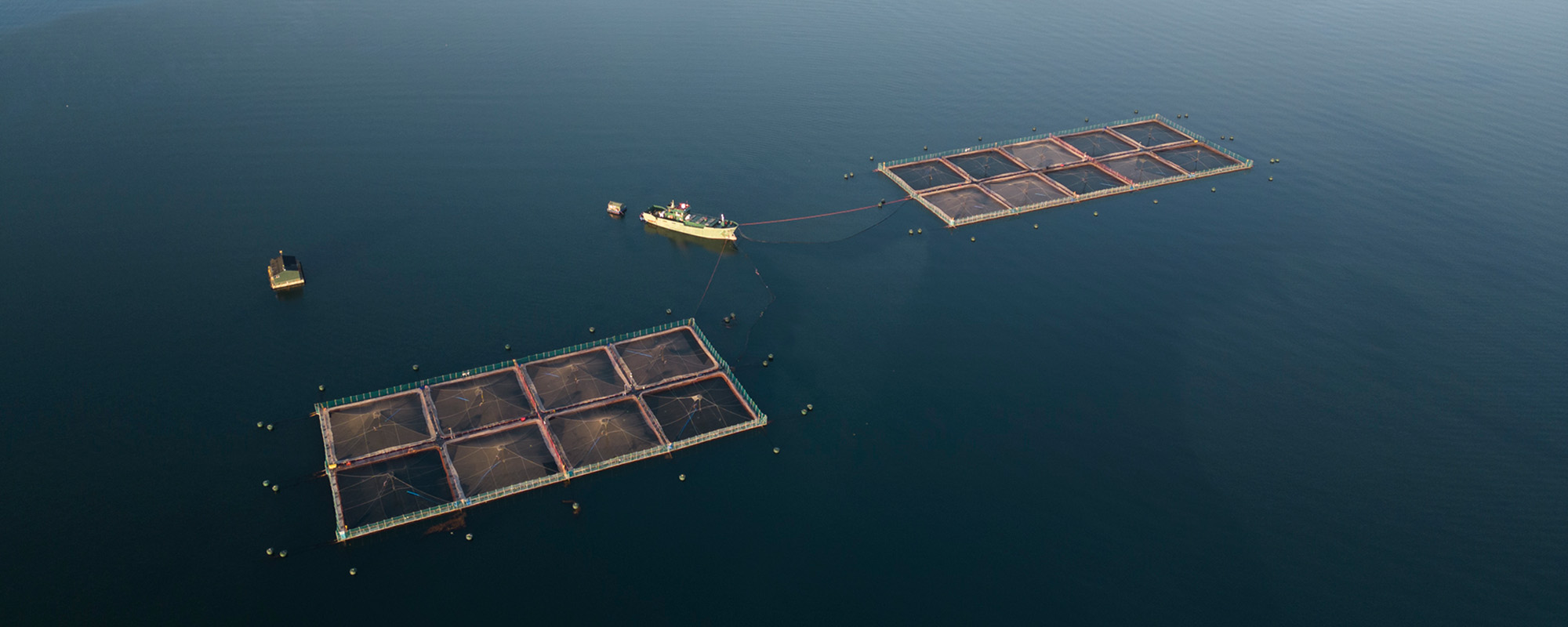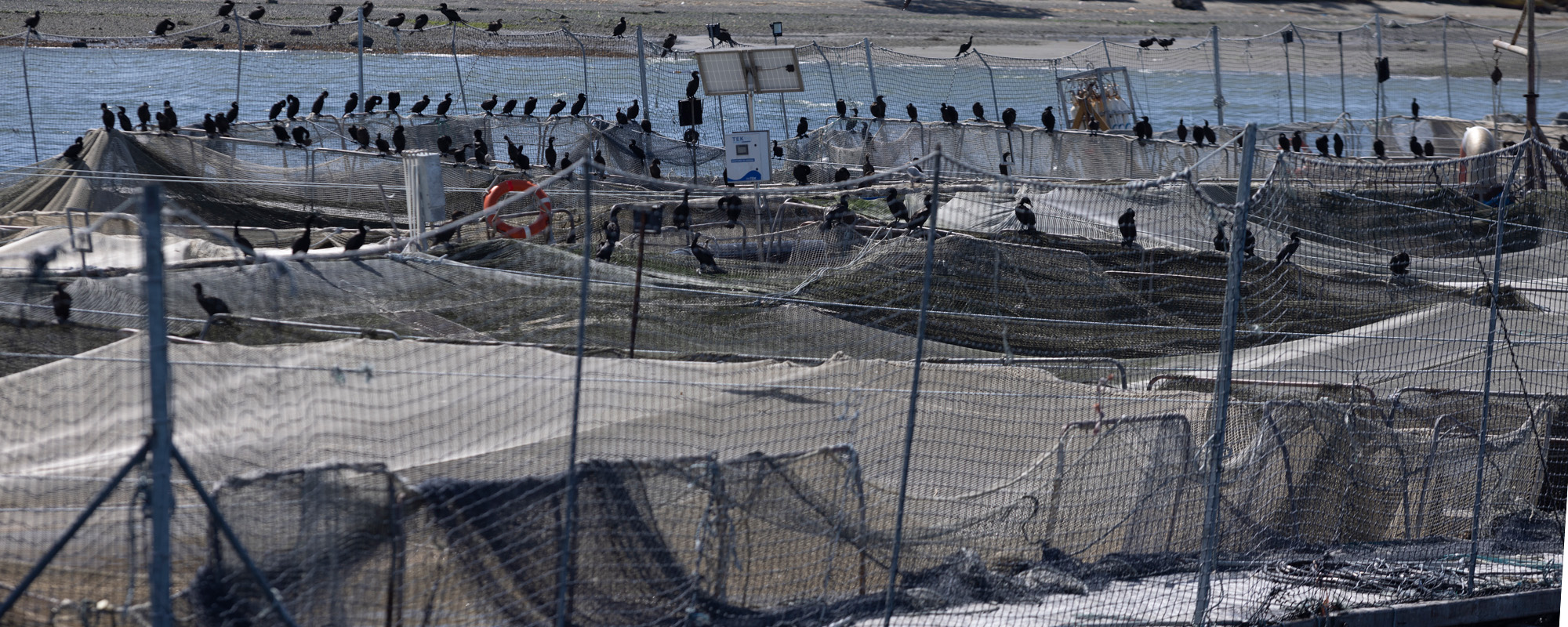
Foto: Daniel Casado
Legal Noncompliance
The salmon farming industry operating within protected areas faces multiple violations of current legislation, including breaches of the General Environmental Framework Law and the General Fisheries and Aquaculture Law. It also contravenes international agreements such as the Washington Convention.
Violation of the Washington Convention
La International Convention for the Protection of Flora, Fauna, and Scenic Beauty of the Americas (Washington Convention) was ratified by Chile on October 4, 1967 under Supreme Decree No. 531 of the Ministry of Foreign Affairs.
This treaty establishes protection duties for protected areas and imposes clear restrictions regarding the exploitation of natural resources in national parks. According to Article III of the Convention: “The Contracting Governments agree that the boundaries of the national parks shall not be altered nor any part alienated except by action of the competent legislative authority. The existing wealth therein shall not be exploited for commercial purposes.” This establishes an explicit prohibition on any commercial activity within national parks, which includes aquaculture.
Regarding national reserves, Article I No. 2 of the Convention defines them as: “Regions established for the conservation and utilization, under official supervision, of natural wealth, in which flora and fauna shall be given all protection compatible with the purposes for which these reserves were created.” Thus, the Convention allows sustainable use of resources in these areas, as long as such use is compatible with conservation purposes. Clearly, salmon farming, being a cultivation of exotic species, causes severe damage to ecosystems, which is incompatible with the purposes for which these reserves were created.
Thus, this Treaty, which has the force of law, is being violated by allowing the presence of the industry in National Parks and Reserves.
Expiration of Concessions
Salmon farming grow-out centers operate on national assets for public use: water bodies and the seabed. Chilean legislation, through the General Law on Fisheries and Aquaculture, requires an aquaculture concession granted by the Undersecretariat for the Armed Forces (SSFFAA) for this purpose. These concessions can be indefinite if granted before the enactment of Law No. 20.434 of 2010, or have a duration of 25 years and be renewable if granted afterward. Additionally, concessions can only be granted within Areas Appropriate for Aquaculture (AAA).
Granted concessions are subject to expiration causes established in the General Law on Fisheries and Aquaculture, including failure to commence operations within one year from physical delivery or having suspended activities for more than two consecutive years without permission from the authority.
According to information from Fundación Terram, there are 280 concessions granted within Protected Areas that would have incurred one of the two expiration causes, representing 68% of the total. However, the National Fisheries and Aquaculture Service (Sernapesca) only reported 58 cases and, despite this, by June 2024 the SSFFAA has only expired 2 concessions.
Avoidance of the Environmental Impact Assessment System (SEIA)
In environmental terms, aquaculture activity has been governed since 1997 under the General Environmental Framework Law (Law No. 19,300, LBGMA), which grants an environmental permit for its operation, known as the Environmental Qualification Resolution (RCA). To obtain it, companies must submit their project to the Environmental Assessment Service (SEA) either through an Environmental Impact Statement (DIA) or an Environmental Impact Study (EIA). In most salmonid farming centers, companies obtain their environmental permit through a DIA, an instrument with fewer requirements than the EIA. Once the RCA is obtained, companies can operate while complying with institutional requirements, such as authorized production quantities.
For concessions granted before 1997 (when Law No. 19,300, LBGMA was enacted), these were not environmentally assessed. However, regardless of the case, all concessions must have a Technical Project (PT).
When a farming center modifies its PT without submitting it to environmental assessment, it commits avoidance, which is considered a very serious violation, and can result in closure of the center or a fine of up to 10,000 UTA (approx. 7.8 billion Chilean pesos). The operating permit may even be revoked.
An investigation by Fundación Terram detected 2 cases of avoidance in Laguna San Rafael National Park and 2 cases in Magdalena Island National Park. As of July 2024, the Environmental Superintendence (SMA) has not initiated a sanctioning process for these cases.
Overproduction of salmonids
Overproduction of salmon occurs when a fish farm that has been environmentally evaluated and holds an Environmental Qualification Resolution (RCA) produces a quantity (in tons) of fish exceeding the limit authorized in its RCA.
This is one of the main environmental violations committed by the industry, classified as a serious infraction, which can be sanctioned by the Environmental Superintendency (SMA) with a fine of up to 5,000 UTA (approximately $3.9 billion CLP), closure of the facility, or revocation of its RCA.
Overproduction, like any environmental violation, prescribes after three years if the SMA has not initiated an investigation. According to investigations by Fundación Terram, there have been 24 cases of overproduction in Alberto de Agostini National Park and 95 cases in the Las Guaitecas and Kawésqar National Reserves that were not detected by the SMA.
It is worth mentioning that in 2023, the industry exported more than 1 million tons for USD $6.448 billion, without it being possible to determine how much corresponds to overproduction and, therefore, was produced outside the law.
Violation of the objectives for the creation of protected areas
Protected areas exist because they are key places for the safeguarding of species, ecosystems, processes, and natural dynamics. Whether they are parks, reserves, or other conservation categories, their creation objectives highlight their importance and are detailed through a justificatory process carried out during their establishment.
The main objective of creating protected areas is to preserve our natural heritage, and therefore, allowing the salmon industry to operate within them—which not only has commercial purposes but also cultivates exotic species originating from the northern hemisphere—is a serious contradiction.
Lack of Oversight and Sanctions
The lack of oversight and sanctions by public agencies toward the salmon farming industry has allowed companies to begin or resume operations beyond the time limits established by law, preventing the termination of concessions. This has even been confirmed by the Comptroller General of the Republic. In its recent Audit Report No. 9 of 2024, the (CGR) concluded that both the National Fisheries and Aquaculture Service (SERNAPESCA) and the Undersecretariat for the Armed Forces (SSFFAA) failed to fulfill their roles in supervising and sanctioning salmon farming concessions that had grounds for termination, as established in the General Law on Fisheries and Aquaculture.
“In a review of the Aquaculture Oversight Information System (SIFA), the Comptroller General of the Republic (CGR) identified a lack of control by the National Fisheries and Aquaculture Service (SERNAPESCA) over 170 salmon farming centers and the failure to apply the legal grounds for concession termination,” the entity stated.
The legal framework under which the salmon farming industry operates will undergo changes with the implementation of the new Law 21.600, which creates the Biodiversity and Protected Areas Service (SBAP), as well as the future aquaculture and fisheries laws announced by the government of Gabriel Boric.
News relacionadas
[Radio U.Chile] Salmonera que opera en Chile es acusada de contaminar en Estados Unidos
Por: Patricio Segura (Leer noticia en Radio UChile) La organización Conservation Law Foundation inició una demanda en contra de Cooke Aquaculture por vulnerar la "Ley Agua Limpia". En Chile, la misma empresa está siendo investigada por eludir el Sistema de Evaluación...
[DiarioPuertoVaras] Valoran llamado a cumplir la ley en caso Quiroga y sobreproducción de salmonera Australis
Por Eliana Chong (Leer noticia en DiarioPuertoVaras) La decisión de la Fiscalía de formalizar a tres ejecutivos de la empresa, viene a refrendar una de las exigencias de la campaña Salvemos la Patagonia. Esto es, “que se cumpla la ley”, especialmente cuando las...
[CIPER] Áreas protegidas de la Patagonia están asfixiadas por el cultivo industrial de salmones
Por: Daniel Espinoza y Maximiliano Bazán (Leer noticia en CIPER) En esta columna escrita para CIPER se dan los detalles de un estudio realizado por la Fundación Terram que da cuenta que de los 1.302 muestreos ambientales realizados en centros de cultivo de salmones...

Foto: Daniel Casado
![[Radio U.Chile] Salmonera que opera en Chile es acusada de contaminar en Estados Unidos](https://www.salvemoslapatagonia.cl/eng/wp-content/uploads/2025/01/eeuu-400x250.png)
![[DiarioPuertoVaras] Valoran llamado a cumplir la ley en caso Quiroga y sobreproducción de salmonera Australis](https://www.salvemoslapatagonia.cl/eng/wp-content/uploads/2025/01/concesiones-salmoneras-sur-chile-400x250.jpeg)
![[CIPER] Áreas protegidas de la Patagonia están asfixiadas por el cultivo industrial de salmones](https://www.salvemoslapatagonia.cl/eng/wp-content/uploads/2025/01/A_UNO_1440092-scaled-1-400x250.jpg)